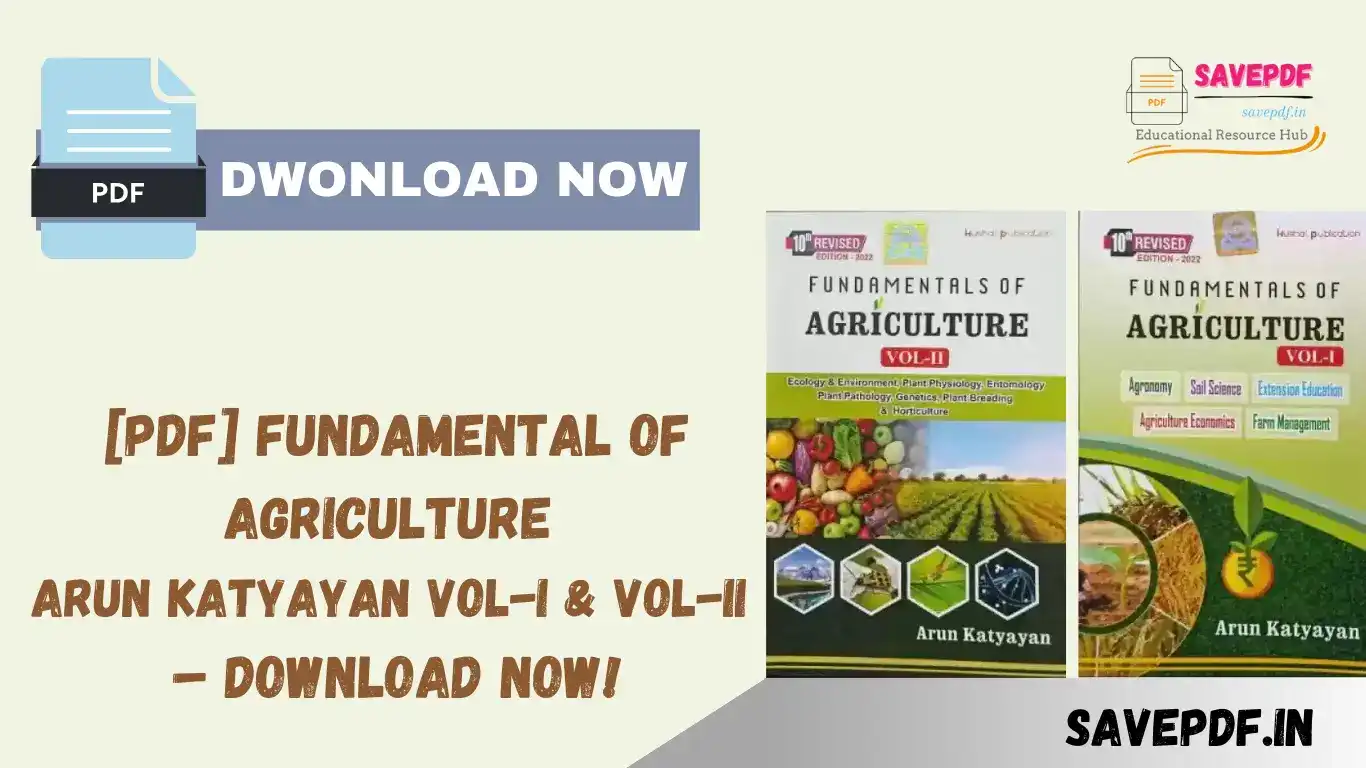Fundamental of Agriculture Arun Katyayan: The field of agriculture forms the backbone of our civilization, and to understand its nuances, there’s no better resource than Fundamental of Agriculture by Arun Katyayan. This article introduces the book, summarizes its key content, and explains why it is indispensable for agriculture students, professionals, and enthusiasts alike. If you’re preparing for competitive exams, pursuing an agricultural degree, or just curious about the science of agriculture, this book is a must-read. Read on to learn more about this incredible resource and find the link to download the PDF versions of Volume I and II.
eBook Download Now: Agriculture at a Glance Latest Edition
An Overview of the Book: Fundamental of Agriculture by Arun Katyayan
Arun Katyayan’s Fundamental of Agriculture is a comprehensive two-volume guide that covers every essential aspect of agriculture, from basic principles to advanced applications. Known for its reader-friendly language and organized structure, this book is a valuable tool for beginners and professionals alike.
Here’s what you’ll find in each volume:
- Volume I Highlights:
- Core Topics: Fundamental agricultural practices, soil science, and water management.
- Detailed Analysis: Concepts of crop production, agro-climatic conditions, and the role of technology in modern farming.
- FAQs & Exam Prep: Tailored content to help aspirants tackle competitive exams such as ICAR, JRF, and ARS with confidence.
- Volume II Highlights:
- Advanced Topics: Plant breeding, biotechnology, and pest management.
- Research Insights: Discusses emerging trends like organic farming, climate-smart agriculture, and the impact of global policies.
- Practical Knowledge: Step-by-step guidance for real-world agricultural applications.
Whether you are studying for academic purposes, preparing for competitive exams, or looking to deepen your understanding of agriculture, these volumes are packed with knowledge you can rely on.
eBook Download Now: A Competitive Book of Agriculture by Nem Raj Sunda
Why Should You Read This Book?
- Holistic Understanding: Covers fundamental and advanced topics in a single resource.
- Exam-Ready Content: Ideal for students preparing for exams like ICAR, JRF, NABARD, and more.
- Real-World Applications: Offers practical knowledge and problem-solving strategies.
- Latest Updates: Features updated content to align with current trends and practices in agriculture.
Arun Katyayan’s Fundamental of Agriculture has been praised by students and professionals for its ability to explain complex concepts in a simple manner. It’s an essential companion for anyone looking to master the science of agriculture.
How to Download Arun Katyayan’s Agriculture Books (Vol-I & Vol-II)
Downloading these books is simple. The PDF versions of Arun Katyayan’s Fundamental of Agriculture Vol-I & Vol-II are easily accessible online. Click the link below to download the latest edition:
File Type: PDF
File Type: PDF
Latest Govt. Job News: Click Here NRITIHAS.COM
What is agriculture in a book?
What is the importance of this book?
Is this book useful for other exams?
Which book discusses the science of agriculture?
What data is available in this book?
Volume I: Basics of agriculture, soil science, water management, crop production, agro-climatic conditions, and technology in farming.
Volume II: Advanced topics like plant breeding, biotechnology, pest management, organic farming, and climate-smart agriculture.

